It was a great privilege to interview J. M. Varner, a teacher and Catholic author of two novels for teens that center on technology and social media. I first learned of Mr. Varner's novels through Barb in Nebraska, a Twitter user who's a Catholic school teacher and who has excellent taste in books. As you'll see from the subject matter of Mr. Varner's books, it's most appropriate that we were introduced through social media.
Please share a bit about yourself with our readers.
With the days of international travel behind him, J. M. Varner now exercises his language skills in his English classroom and on the page. A second life as an author affords him another way to encourage his students and fans to read, write, and think independently.
Mr. Varner is currently writing the next novel in the Squirrel Hill High series, a series launched with the debut novel, Digital Me. Set in a fictional high school located in the Squirrel Hill neighborhood of Pittsburgh, Pennsylvania, at Squirrel Hill High students and teachers live through true-to-life drama in the emotionally charged environment of the American high school.
What’s the most important thing for teachers to teach students about safe use of technology?
Given that teachers are responsible for creating a classroom learning community with shared values of respect and cooperation, one of the most important lessons that teachers can reinforce with students is the value of ethics in interactions in the digital world.
Given that our "digital selves" are abstractions from our actual "analog" selves, it is easy in the digital world to slip into a mode of forgetting that we're interacting with real people who have real feelings.
This issue manifests itself on the Internet at-large in the phenomenon of the Internet Troll (look it up on Wikipedia -- worth familiarizing oneself with!). This is enabled by the fact that in the digital world true anonymity is much more achievable than in the non-digital world.
Teaching students that it's not cool to "Troll" -- as well as teaching Trolling targets the "Do Not Feed the Troll" (aka "DNFtT") lesson -- are essential ingredients in any effort to teach young people ethical and safe use of technology.
What’s the most important thing for parents to teach kids about safe use of technology?
One crucial lesson that parents can teach kids about staying safe online is an understanding of the distinction between what is "private" and what is "public".
As adults who interact in various aspects of the public sphere, we're more aware than our children of what kinds of things are inappropriate to be shared with the general public. What may be fine to share in the privacy of the home with one's own family may expose one to unintended consequences should it be put out there for all to see.
In the digital world, the "public versus private" distinction becomes all the more important, as once something is posted somewhere on the Internet, irregardless of the "privacy settings" touted by the social network, it must be assumed that whatever has been shared is available to anyone in our digitally connected world.
The positive flip-side of this is a concept that I, as an educator and an author, use -- the concept of "Professional Social Media". This approach to social media use seeks deliberately to put one's "best foot forward" and to share positive accomplishments.
But how can teens, who are just beginning to develop their "public" persona (let alone any "professional" image) make use of the Professional Social Media concept? My suggestion would be to encourage positive interactions and sharing online surrounding the young person's personal interests, e.g. sports, music performance, reading, writing, etc. And parents should be a part of their child's social media networks, as much to "monitor" as to share in the positive accomplishments and other items related to their child's life.
What's the most challenging thing for kids to learn about tech safety?
Passwords. Creating strong passwords that they can actually remember while also not utilizing seemingly clever tricks that are easily predictable.
How real is the identify theft/hacking danger as described in Digital Me? How can families act to prevent this?
In writing fictional stories about technology, it's always a balancing act between including enough technology and techno-speak to make the plot plausible and not including so much techno-babble that the story turns into an unreadable mish-mash to all but the savviest of geeks.
In Digital Me, the selection of Sara as a target was a very personalized event. I was inspired by the story of Wired journalist Mat Honan's hacking, especially how he was individually targeted for his highly coveted three character Twitter handle. In reality, however, identity theft and hacking are usually far more random. Bad actors cast the widest possible net in the hopes of ensnaring a small fraction of those exposed to the malicious code.
Digital Me does included some embedded hints for keeping safe online, including the cryptic phrase on one of Leo's t-shirts: Keep Calm and Disable Java In Your Browser. Keeping your operating system, browser, anti-virus, and anti-malware software updated is also an important way to prevent exposing your software to known exploits. Finally, exercising common sense by not clicking on links in untrusted email, not downloading files from untrusted sources, and staying away from the darker corners of the Internet are good practices for parents to instill in their children.
Mister Teacher Person makes it clear that cyberbullying doesn’t only affect teenagers. What’s the best way to protect ourselves from cyberbullying?
I tend to think of the "cyberbullying" issue in terms of the concept of reputation, one of the themes in both Mister Teacher Person and Digital Me. We tend to think of reputation as what other people think of us, but we should not neglect to also consider that it's also about what we think of ourselves. This is where discussion of bullying, cyber or otherwise, connects with reputation.
Reputations can be created and bolstered, or they can be shot down and destroyed. In Mister Teacher Person, I wanted to make it clear that the types of negative interactions we refer to as "cyberbullying" are not unique to the cyber realm. I had a lot of fun drawing on Shakespeare's Othello (particularly Iago's manipulation of Othello in Act 3 Scene 3) to provide a literary connection to how our thoughts and the thoughts of others can be manipulated into believing things that come to us only though the most questionable of sources and influences. In that "there is nothing new under the sun," we must remember that what we think of as cyberbullying is the same type of negative "reputation bashing" that has existed in the dark crevices of social interactions since the earliest times. Only in the digital world, the limitations of place and time that provide a buffer or limit on who we interact with are gone.
I dramatized this in Mister Teacher Person by having two parallel sets of events going on surround the issue of reputation destruction: Those of the protagonist, Stacy, and her non-digital smears against Mr. Matthews, and the digitally-enhanced events that surround the disappearance of Mr. Payne (no spoilers!).
Do you use your novels as part of your classroom discussions on safe use of technology?
In class discussion of technology and safety on the Internet, I do use articles that provide real-world examples of the types of issues dramatized in Digital Me and Mister Teacher Person. Through the article discussions, many students have had their curiosity piqued in regards to these issues and have been interested in reading my fictional dramatizations of them.
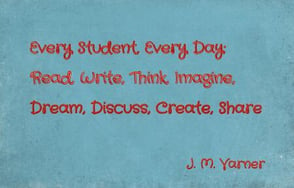
Anything else you’d like to share with CatholicMom.com readers regarding tech safety?
Always remember: Communication technology is a neutral medium. We're all aware that technology can be used to spread the vilest of evils and the most banal, time-wasting trivialities. The key is choosing to make positive use of technology to connect with others and to enhance our appreciation for our fellow men and women who've all been created in the image of God.
Mr. Varner's books are available through Amazon. I've read them both, and they definitely can be good conversation-starters for parents (or teachers) and teens as we navigate the cyber-world together.
Copyright 2014 Barb Szyskiewicz
About the Author
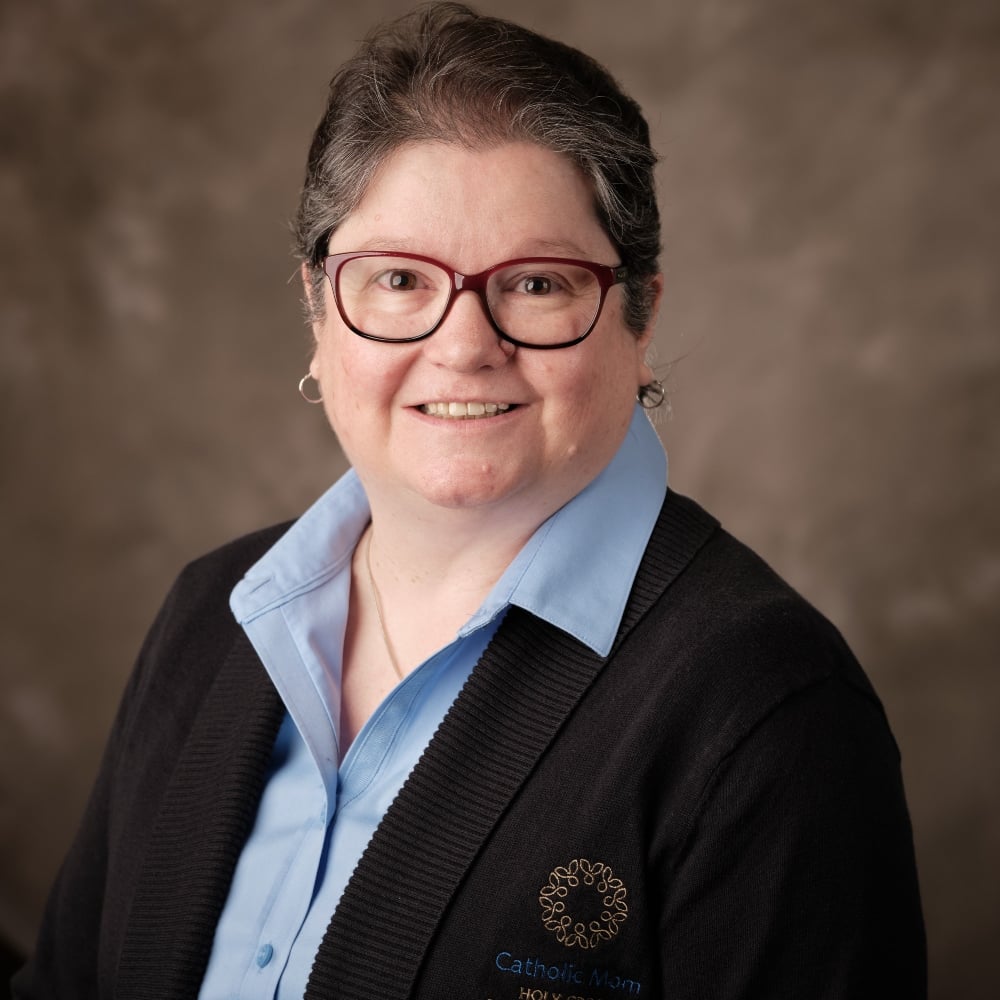
Barb Szyszkiewicz
Barb Szyszkiewicz, senior editor at CatholicMom.com, is a wife, mom of 3 young adults, and a Secular Franciscan. Barb enjoys writing, cooking, and reading, and is a music minister at her parish. Find her blog at FranciscanMom and her family’s favorite recipes with nutrition information at Cook and Count. Barb is the author of The Handy Little Guide to Prayer and The Handy Little Guide to the Liturgy of the Hours, available from Our Sunday Visitor.

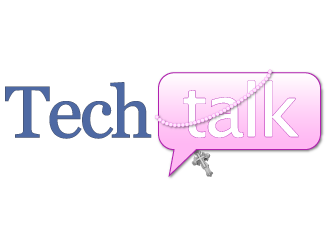

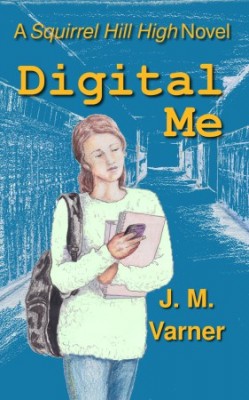
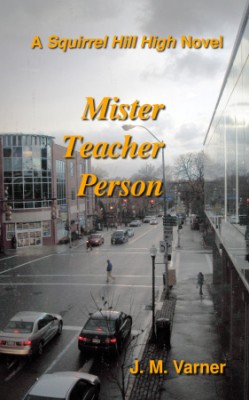

.png?width=1806&height=731&name=CatholicMom_hcfm_logo1_pos_871c_2728c%20(002).png)
Comments